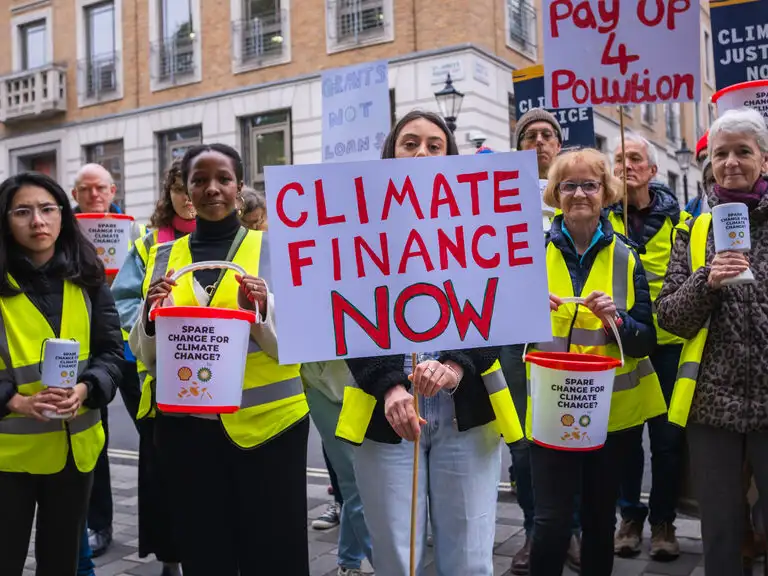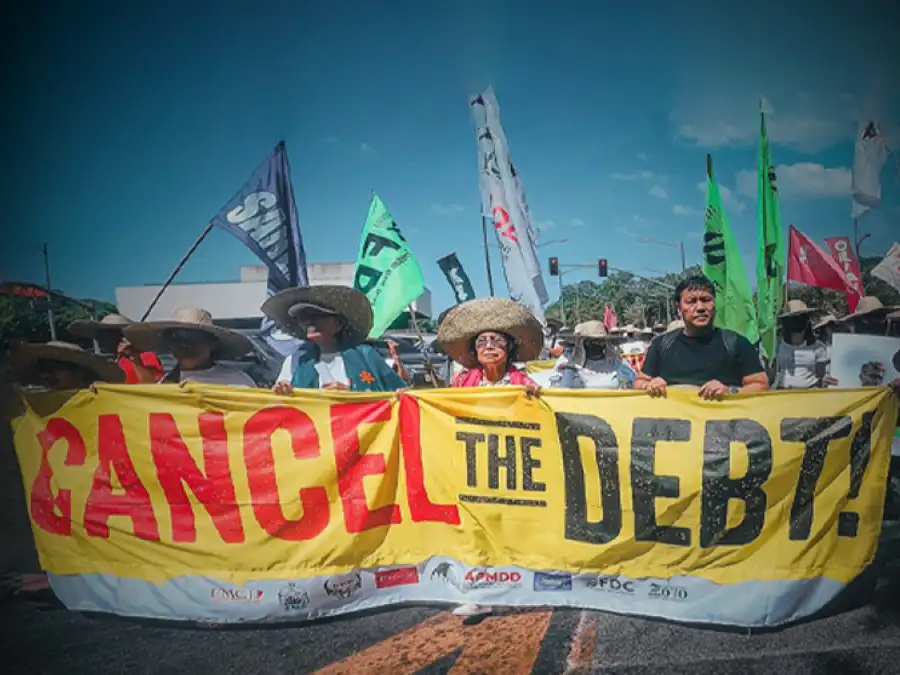

Campaigners called for governments at COP29 to agree a new deal to provide countries on the frontline of the climate crisis with money to tackle it
The COP29 talks in Azerbaijan have ended with a weak deal to provide low-income countries with money to tackle the climate crisis.
Governments at the summit agreed that developing countries hardest hit by the crisis will receive $300bn a year by 2035. The money, known as ‘international climate finance’, is intended to support low-income countries to prepare for climate disasters and rebuild after emergencies.
But governments failed to guarantee this money would be provided as grants, rather than loans. This risks worsening the debt crisis that many countries on the frontline of the climate emergency are facing.
Governments at the COP in Azerbaijan also agreed a further, long-term target of $1.3tn in climate finance by 2035, but without plans on how to raise this. Campaigners, including CAFOD supporters, have called for governments to fund more climate finance by taxing big polluters such as fossil fuel companies.
Climate finance agreement 'falls flat'
CAFOD's climate policy lead Liz Cronin, who attended the talks in Baku, said the COP agreement fell "completely flat".
Liz said:
"This was meant to be the ‘Finance COP’ where developed countries finally stepped up to meet their historic financial responsibilities. Instead, we saw familiar Global North battlelines drawn and stuck to, with the usual suspects blocking real progress on grant-based, polluter-pays finance and on the phase-out of coal, oil, and gas."
"If we are to stand a chance of keeping to the 1.5°C target, countries must urgently deliver new and enhanced national climate plans that can get us there.”

The New Debt Crisis
For the Year of Jubilee in 2025, people across the world are uniting in solidarity to demand action on the global debt crisis.

